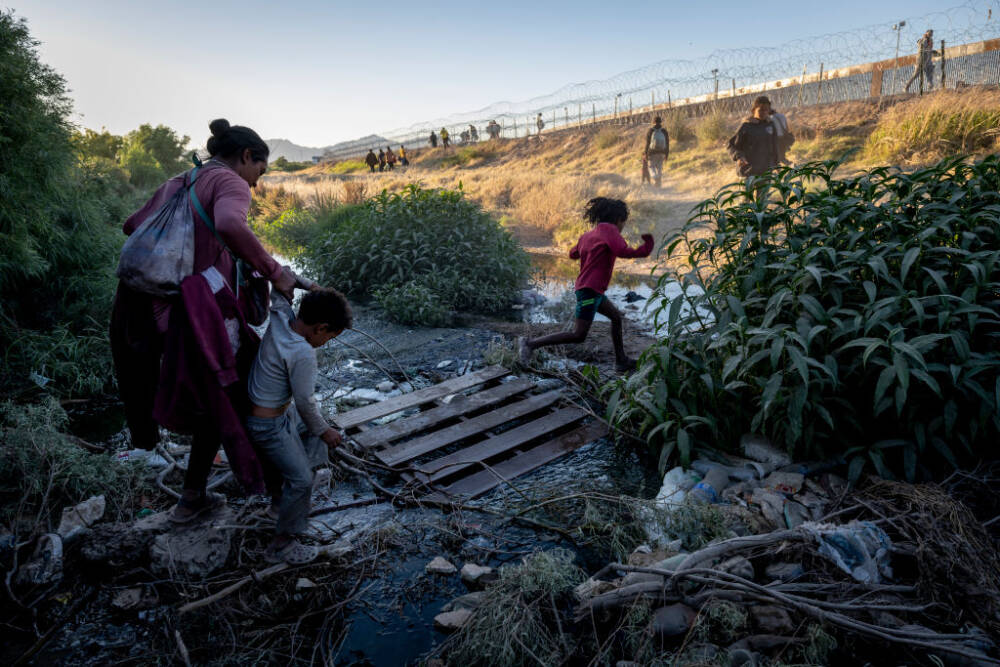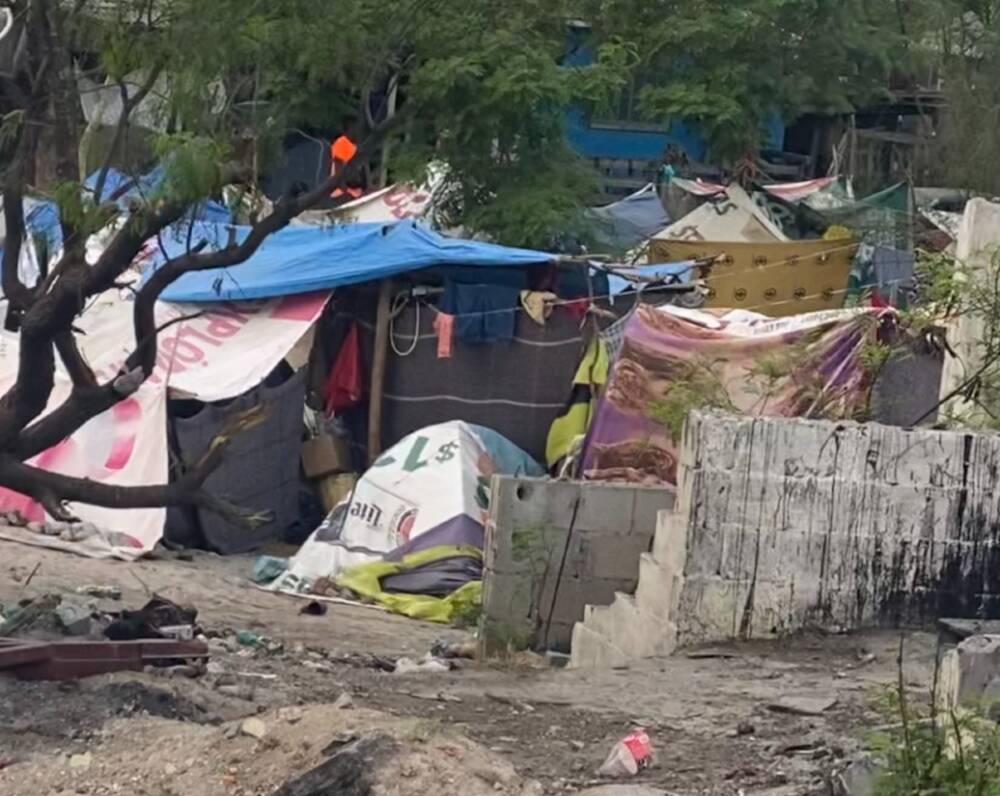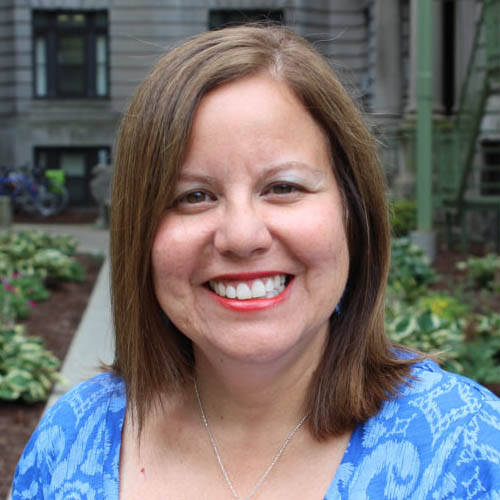Advertisement
Commentary
I traveled with my students to the Rio Grande Valley. I hope what they saw will stay with them

Anyone following the immigration debate over the last decade has seen the grim headlines: Family separation. Child exploitation. Unscrupulous smugglers. Deadly treks through the jungle.
When I accompanied a group of Boston University students to the Rio Grande Valley this spring through the Border Studies Program, led by the Center on Forced Displacement, we saw the desperation and frustration firsthand. During our 10-day trip, students volunteered at a migrant shelter and with other organizations, serving meals, distributing clothing, looking after children and helping translate documents. They got to know the families, their strength and the struggles that had brought them there.
In Reynosa, Mexico, right across the border from McAllen, Texas, thousands of migrant families are living in tents, many without running water or electricity. These families have already survived harrowing journeys from their countries of origin, which often include Haiti, Honduras, Venezuela, El Salvador, Guatemala and Nicaragua. In addition to spending their life savings, some were subject to abductions or sexual assault.
Migrants have been stranded in these conditions at least in part because of a controversial program known as Title 42, which officially ended May 11, but was widely used starting in March 2020, when the Trump administration invoked the statue at the start of the COVID-19 pandemic. Title 42 gave the U.S. government broad emergency powers to block asylum seekers and others from entering the country under the guise of preventing the spread of disease. Under Title 42, border patrol agents had the authority to override immigration laws that protect asylum seekers and ensure due process, and expel migrants to their last port of entry, usually Mexico.

While they wait for a chance to cross into the U.S., a process that can take months, people are vulnerable to exactly the kind of violence many of them fled in the first place: criminal gangs, kidnapping, extortion. And services to help are few and far between.
A Customs and Border Patrol app known as CBPone, designed to streamline immigration hearing requests, has been plagued by setbacks. We talked to families who told us that finding a functioning smartphone, charger and wifi signal in order to fill out their information and upload photos to the app was no easy feat; some relied on volunteers to lend them their devices or assist with language barriers.
Others said they were not able to enter all of their children’s details in time before the app crashed or reset, and had to resort to splitting up. This meant that a mother (or father) and one child might be able to schedule an appointment, while the other parent had to remain behind with the rest of their children, praying to be reunited soon.
Families who had been languishing in these camps for months also competed against new arrivals for limited spots, resulting in an overwhelming atmosphere of chaos and despair. For my BU students — one social work graduate and nine undergraduates from different disciplines — it was an eye-opening experience. They had prepared for the trip by reading articles, biographies and first-hand accounts, and by studying the history of migration in the Rio Grande Valley. On the ground, they not only saw immigration policies in action, they observed the resilience of the families who had escaped political conflict, violent crime and economic upheaval that prompted them to make the journey with their children in search of better lives.
At the same time, I learned from my students, who demonstrated openness, humility and their own form of resilience. Some could relate to the migrants’ experiences because their own parents had made a similar trek as immigrants and refugees, and worked hard, so that their children had the opportunity to finish school and go to college. The trip reconnected these students with their own histories while letting them give back to other families in need.
[My students] not only saw immigration policies in action, they observed the resilience of the families who had escaped political conflict, violent crime and economic upheaval
Title 42 has given way to a new set of restrictions. But for migrants, systemic challenges and uncertainties remain, even once they settle into their host communities and start rebuilding their lives.
As a social work expert who has watched this humanitarian disaster unfold, my heart breaks for the parents and children who have spent these last three years in legal limbo, not to mention those migrants who have become pawns in anti-immigration stunts by some governors.
Title 42 was never about public health. It was about keeping out people — who in many cases meet the criteria for asylum — and a workaround to delay border crossings. Meanwhile Congress has refused to act on comprehensive immigration reform and cynical politicians incite racism and xenophobia.
We simply must do better. Migrant families need our support — not the patchwork of resources available now, but a coordinated national response to this growing crisis.
During the trip, my students and I discussed the need for immigration reform and policies that are less punitive. They need mental health and trauma care, assistance with housing and education, and policies in place that guard against horrifying injustices like family separation. This responsibility cannot be left to border cities or states — and not just because many lack the infrastructure or political will. Once migrants enter the U.S., they join family members or seek employment all across the country. We need robust services and outreach from coast to coast.
We also talked about how the Biden administration’s new immigration policies will prevent many families from being granted asylum. Instead, they will be returned to unsafe conditions in their home countries, where they will be banned from reapplying for five years. This is unacceptable.
As we move forward from this shameful chapter of our history, we must dispel the myth that migrants and asylum seekers are criminals or here to steal jobs. Let’s focus instead on the hardworking families who deserve a second chance at stability and safety — then fund the resources and programs that will help them get it.
